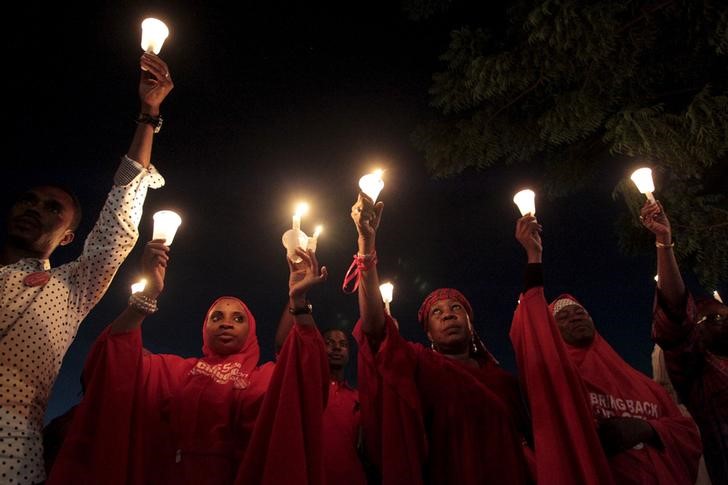World leaders must do more to recover Nigeria’s missing girls-activist

By Reuters
The co-founder of the Bring Back Our Girls campaign urged world leaders on Friday to do more to help hunt down Boko Haram militants and rescue hundreds of schoolgirls abducted in northeastern Nigeria more than a year ago.
Obiageli Ezekwesili, a former Nigerian education minister and World Bank vice president, said she believed the girls were safe, despite militants’ videos claiming to have converted them to Islam and married them off to their captors.
“I always see hope. Hope is inexhaustible. The day we stop hoping, we all die,” Ezekwesili told delegates at the Women in the World Summit in the Indian capital, adding that there was no real evidence to suggest the girls would not return home.
“But beyond staying hopeful, what needs to happen is that the leaders of the world need to find their strength. I really do not understand how leaders of the world sat around and watched a renegade group become monsters terrorising the world.”
The militant Islamist group, whose six-year insurgency has caused thousands of deaths in Africa’s most populous nation and biggest oil producer, seized 276 girls from secondary school dormitories in Chibok in April 2014.
Some girls managed to escape but 219 are still missing, despite Ezekwesili’s #bringbackourgirls social media campaign which brought the issue to global attention.
The activist, who also co-founded the anti-graft watchdog Transparency International, asked how the Nigerian government could spend so much on defence yet fail to stop Boko Haram’s aggression.
“What the national security advisor in my country has to explain is how come there is $6 billion annual investment in defence and security, yet we find ourselves in a situation where a bunch of savages has grown to monstrous porportions and terrorised, not just us, but the rest of the world,” she said.
The Global Terrorism Index said this week that Boko Haram had killed 6,644 people during 2014, more than any other militant group, and that Islamic State, based in Syria and Iraq, followed it, killing 6,073 people last year.
Ezekwesili said she was disappointed with the global response to the Nigerian kidnappings, adding that the recent attacks in Paris showed that terrorism had no borders and demanded every country’s attention.
“Our girls don’t just need my country to act, our girls need the entire world to feel traumatised so that any child anywhere in the world is not put into this kind of danger,” said Ezekwesili, who was on Time magazine’s list of the 100 most influential people in the world in 2015.
“These girls were attacked because they wanted education and now are we going to turn our backs on them? We lack the moral credentials to tell any girl child to go to school if we don’t do anything about our Chibok girls.”